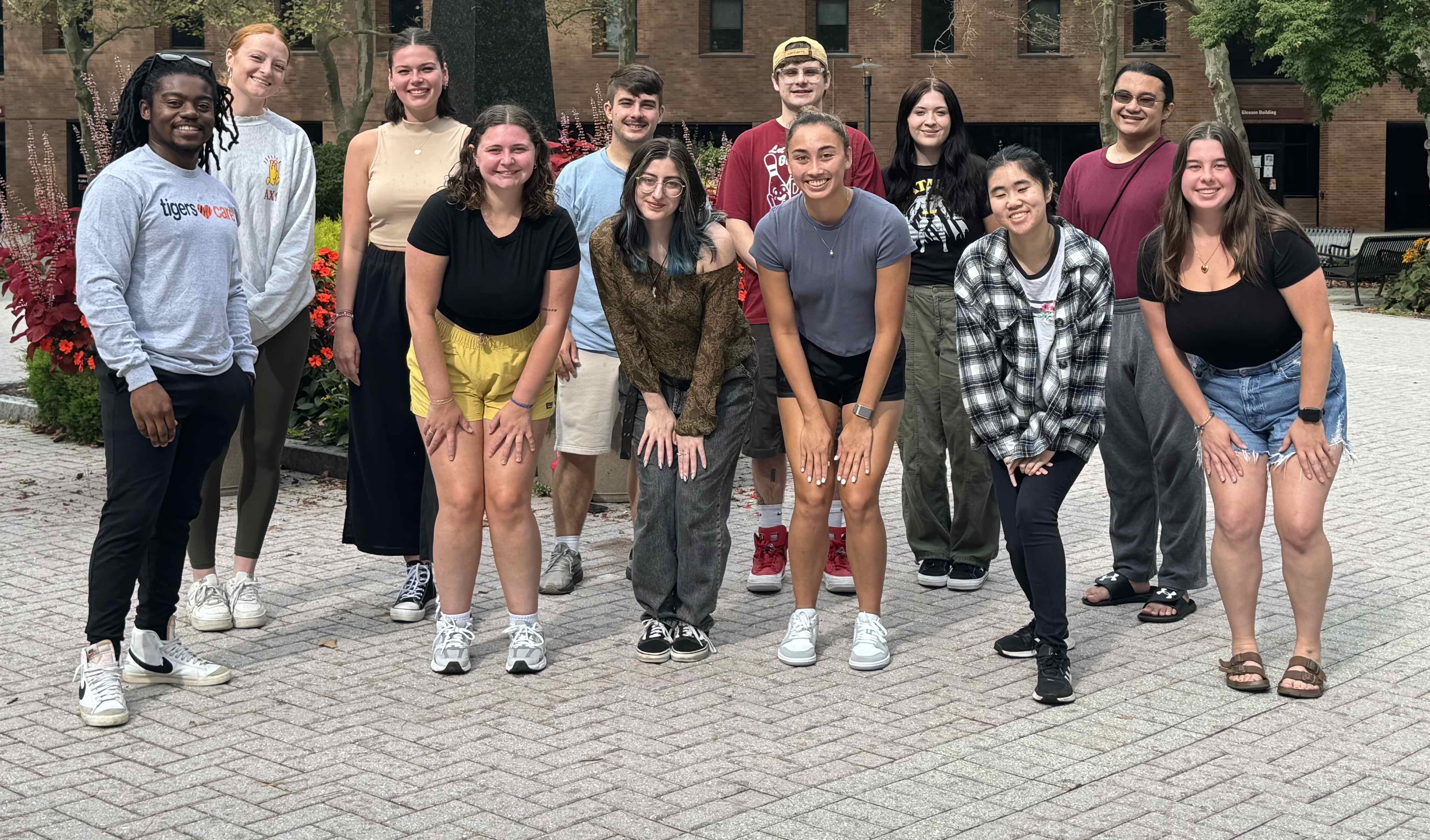FAQs

- RIT/
- Technically Speaking/
- FAQs
FAQs
General
A student-run agency is managed and operated by students with a variety of backgrounds and specialties, to provide them with real-world experience in a controlled environment. A faculty-led agency has oversight from faculty advisors to help guide and facilitate student work.
Technically Speaking is a student-run, faculty-led Ad and PR agency at RIT within the School of Communication. See our About Us page for more information.
Students
Students must enroll in the course on RIT’s Student Information System (SIS) for the fall and spring semesters. Upon enrollment, students will submit an official application to join the agency.
Technically Speaking requires two courses completed before joining: COMM 211 Principles of Advertising and COMM 212 Public Relations
Technically Speaking is a 3-credit course per semester. On a weekly basis, as is expected with 3-credit courses at RIT, students are expected to have 10 hours of work for the agency, which includes work for clients.
Students are expected to commit to a full academic year in the agency. This allows for the front-end of the year to be spent learning the ropes of the agency and the remainder of the time jumping into work. The full year allow for tangible results and contributes to professional experience. For AdPR students, Technically Speaking will be a capstone alternative.
Discussion with the agency’s faculty advisors, Julie Napieralski and Kari Cameron, should occur to see if the agency is right for your circumstances.
Technically Speaking offers students an experiential, flexible, and independent style of learning. Students will gain collaborative experience and develop transferable skills in a professional setting. Technically Speaking welcomes everyone with diverse interests, skill sets and backgrounds.
No! Outside of the course prerequisites, no experience is required.
Yes. Technically Speaking can be listed as experience on student resumes and LinkedIn profiles. You're working with real clients, doing real client work. You'll learn the ropes of agency operations and work process, you'll learn how to work collaboratively in agency teams, you'll take projects from the brief to execution and have work samples to share. This is designed to be a co-op experience that's built into the curriculum of the advertising and PR degree program.
No, Technically Speaking is not paid because it is part of the Advertising and Public Relations degree program curriculum.
Yes! As long as students complete the prerequisites and can commit to the full-year, students are welcome to join. Past, and current, students included majors such as Industrial Design, Computer Science, Graphic Design and Visual Media.
Yes, Technically Speaking can count towards your AdPR minor as the 300-level course requirement. Technically Speaking does not count towards the AdPR immersion because it is not a general education course.
Clients
Technically Speaking pairs youthful talent with strategic vision to create bold, impactful work. Under our motto "Dare to Say More," we serve RIT partners—including the College of Liberal Arts and Division of Marketing—alongside external clients from law firms to sports teams and non-profits.
Technically Speaking offers the RIT community a range of specialized skills and talents centered around providing professional communication solutions that represent RIT's brand values. Technically Speaking offers a youthful perspective and talent from within RIT. Who better to understand the RIT community and interest groups than its own students? Technically Speaking’s essence “Dare to Say More” is intertwined with the work we produce. Our team works to make everything inclusive, bold and daring.
Technically Speaking offers services on campaign research, strategic campaigns, public relations, creative services, brand strategy, print and digital advertising design services, content creation and social media. More can be read about these on our Services page.
Emailing technicallyspeaking@rit.edu or the faculty advisors expressing interest is the first step to becoming a client. The Contact page is also a great way to start a conversation about becoming a client.
Though this will vary, students generally do client work on-campus and remotely from home.
Students have course prerequisites in order to join Technically Speaking that develop their skills and competencies in planning, writing and designing for all things public relations and advertising. Additionally, many students major or minor in specialties such as Advertising and PR, Communication, Graphic Design, Visual Media and more which enables for a wider range of services and capabilities of the agency.
Clients will have a dedicated account team working on your project. Clients will collaborate directly with the students to complete the project - from creating the brief to executing the work and meeting as needed along the way. The student team will be the client's support and advisors throughout the project.